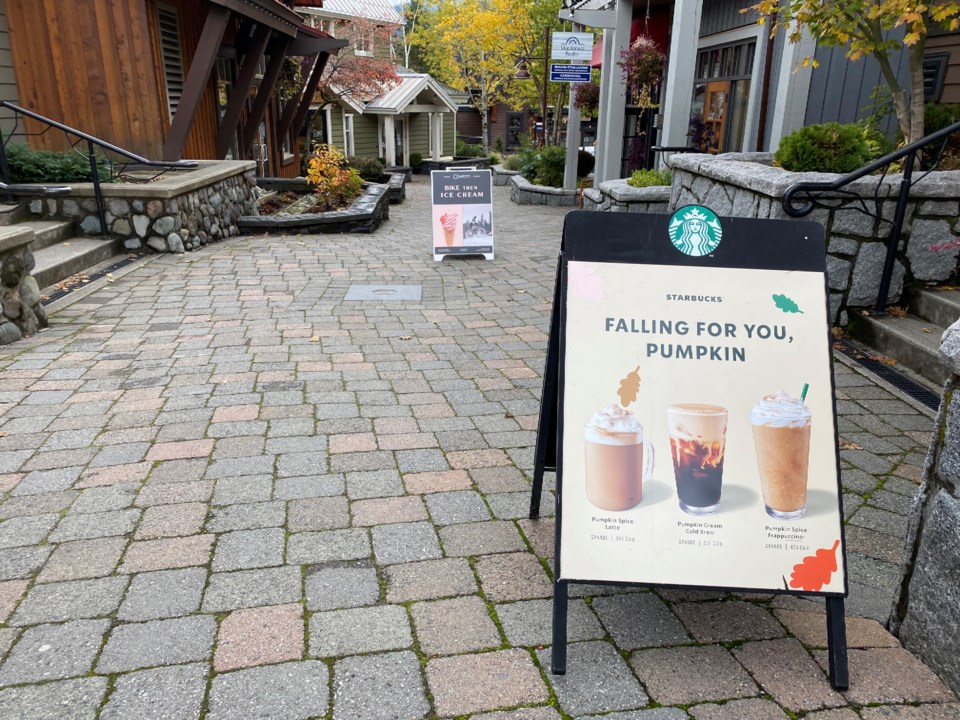A letter to mayor and council from a Whistler resident is prompting the Resort Municipality of Whistler (RMOW) to issue a reminder to local businesses about the local sign bylaw.
The bylaw, first introduced in 1987, prohibits many different kinds of signs, while also setting standards around things like materials, lighting, colours, placement and even lettering size on permitted signs.
But in recent years, the bylaw has been “ignored, overlooked and unenforced. Whistler’s image has been discounted and we have assumed the look of a cheap urban city,” wrote Paul Fournier in his letter.
“Not only are sandwich boards everywhere, some businesses have multiple boards. There are vinyl banners and loud illuminated electric signs. Signs and boards can be seen far away from the businesses they are promoting. Windows can be seen covered on the outside with loud, insulting vinyl wrap.”
Further, many signs are larger than permitted under the bylaw while also featuring oversized lettering.
“The situation has become out of control and I question why there has been no enforcement to preserve our brand as a pristine outdoor mountain environment,” Fournier wrote.
“It is insulting to the values and design guidelines drafted and passed by our respected founding municipal members.”
The issue was raised briefly at Whistler’s Oct. 5 council meeting following receipt of Fournier’s letter.
The problem spans multiple departments, from planning all the way to bylaw, said general manager of resort experience Jessie Gresley-Jones.
“We are in the course of drafting a letter that will go out to all businesses as a reminder of what the current bylaws allow,” Gresley-Jones said, adding that while there has been some provision for sandwich boards to be accommodated for F&B businesses, “that has proliferated, we do agree.”
The RMOW aims to bring signs back under control, “and the first step would be providing a consistent message to all business owners so that when we do go to enforce they’re not caught off guard, or looking at the neighbours as being treated differently or unfairly,” Gresley-Jones said.




